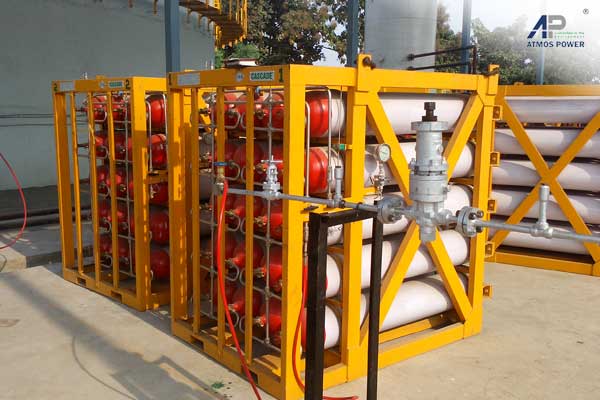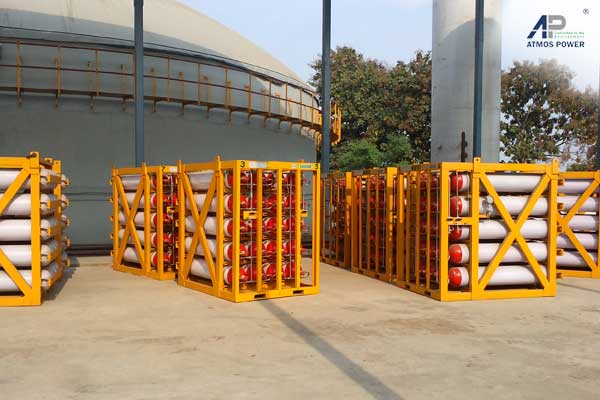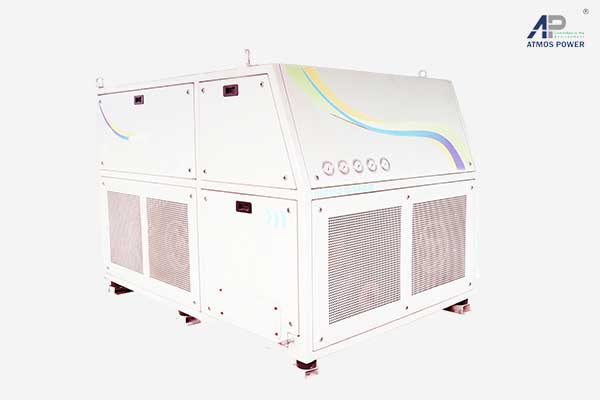Considering its large number of installations, AtmosPower is well equipped to assist any aspiring company or entrepreneur with all the requirements for successfully setting up a
in India. Furthermore, AtmosPower can also help its clients obtain offtake agreements for selling the compressed Biogas to India’s Oil Marketing Companies (OMCs) namely Indian Oil Corporation (IOCL), Bharat Petroleum (BPCL) & Hindustan Petroleum (HPCL).
In order for the upgraded biogas also known as Renewable Natural Gas (RNG) or Compressed biogas (CBG) to be sold to the Oil Marketing Companies, it needs to abide by the Bureau of Indian Standards (BIS).
Based on the White Paper shared by the Indian Oil Marketing Companies, the Compressed Biomethane should have the following specifications.
| S No. | Characteristic | Requirement |
|---|---|---|
| 1 | Methane percentage (CH4), minimum | 90.0% |
| 2 | Only Carbon Dioxide percentage (CO2), maximum | 4% |
| 3 | Carbon Dioxide (CO2) + Nitrogen (N2) + Oxygen (O2) percentage maximum | 10% |
| 4 | Oxygen (O2) percentage maximum | 0.5% |
| 5 | Total sulpher (including H2S) mg/m3, maximum | 20 mg/m3 |
| 6 | Moisture mg/m3, maximum | 5 mg/m3 |
According to the IS 16087:2016 specifications, the following points also need to be considered:
These strict requirements by the oil marketing companies will help make sure that the end user of the compressed biogas (CBG) does not face any hindrances when switching over from a conventional fossil fuel, most likely natural gas. Considering that AtmosPower’s Biogas Upgradation systems are designed for European Grid Injection Standards they can easily fulfil the gas quality requirements of the Indian Market, which are significantly less stringent than European Regulations.
The current agreed upon purchase price set by the OMCs for each Kilogram of Compressed Biogas (CBG) is INR 48.3 including goods and service Tax (GST). This fixed price is offered to encourage and ensure confidence in Biogas entrepreneurs by offering them a confirmed market for their produced Compressed Biogas (CBG). The price also acts as a catalyst for the promotion and adoption of this clean fuel in the Indian Market and is something other Asian countries should adopt.
AtmosPower can help its clients obtain all the necessary compliances and equipment that would be required to successfully convert their biogas into marketable green fuel. An essential part of the compressed biogas (CBG) supply chain is the booster compressor that would allow for the compression and bottling of the upgraded biogas. The compressed gas would then be transported to the nearby OMC’s filling station. Based on our experience, the compressor sizing and selection plays a crucial role in avoiding any bottlenecks in the compression process. In addition, the correct flow and compression technology can help avoid a lot of hassles in terms of capital, maintenance and operation costs.



are envisioned to reduce our country’s reliance on imported fossil fuels are increasing the trade deficit of our country. Furthermore, the compressed Biogas movement in India is aimed at improving the air quality in the country by creating a fuel which is much cleaner as compared to traditional fossil fuels. The main barrier currently is lack of government policies to subsidize the capital investment required to set up compressed Biogas plants.
The support provided by the government comes in the form of a capital subsidy on the overall cost of the plant for the producer. However, what has led to success in most countries that have been successful with setting up compressed Biogas plants and concurrent infrastructure, are the incentives offered to the consumer of the compressed Biogas.
By incentivizing consumers to shift to the cleaner more environmentally friendly fuel European governments, such as the Italian & German government have managed to significantly increase the amount of renewable natural gas in the form of
being consumed by users. Germany offers a subsidy of up to 12,000 Euros on CNG vehicles along with toll exemption for trucks that are powered by natural gas. Thus in order to make it advantageous for an entrepreneur to set up a
, government policies play a pivotal role in paving the way forward.
As an answer to this, the Indian government has come up with the SATAT scheme, which does create headway for potential investments in
by guaranteeing a fixed price for each KG of Biomethane produced. However, there is yet no guarantee on the off-take of the total gas being generated by a producer, which evidently will lead to hiccups in the adaption of this environmentally friendly business venture.
 Certified Company
Certified Company